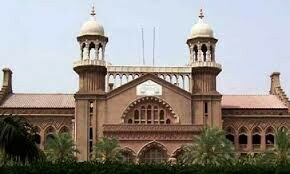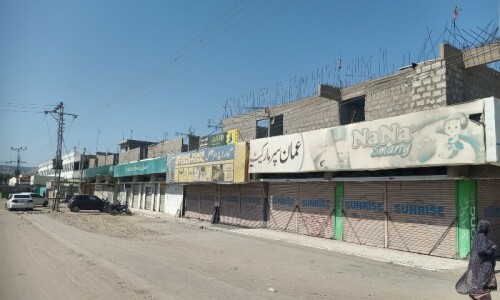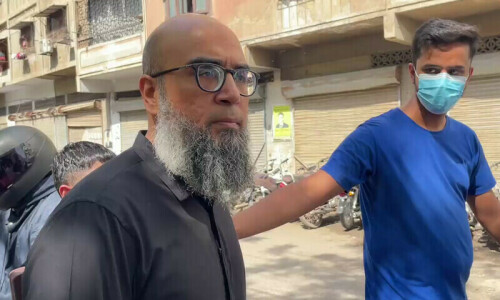
Despite the passage of almost half a century of Zulfikar Ali Bhutto’s time in power, from December 1971 to July 1977, at least five policies and programmes initiated by him not only remain relevant but are considered vital for Pakistan. These initiatives — namely, Pakistan’s nuclear programme; the Constitution of 1973; the Islamic Summit and subsequent export of manpower to Middle East; the development of Pak-China relations; and the Simla Agreement, which ushered in the longest spell of peace in South Asia — can rightfully be considered Bhutto’s true legacy.
Here is a brief overview of these policies and programmes…
Nuclear Programme
Bhutto took over the leadership of Pakistan after the war with India, in which Pakistan lost its eastern wing, and about 56 percent of its population. The country had never felt so demoralised and vulnerable as at this juncture of history. The war demonstrated that, in a conventional war, Pakistan stood no chance against the multiple-times larger and powerful India. Bhutto realised that the only viable defence for Pakistan would be a nuclear deterrent, which would also “restore Pakistan’s place in the world after the defeat,” wrote Ian Talbot in Pakistan: A New History.
About a month after assuming the office of the President, on January 24, 1972, he “gathered the country’s fifty top scientists (including future Nobel Laureate Abdus Salam) at a secret meeting in Multan at the home of local PPP [Pakistan Peoples Party] leader Nawab Sadiq Hussain Qureshi, challenging them to build a nuclear bomb,” wrote Pakistan’s noted military historian Shuja Nawaz in his book Crossed Swords. “He had great charisma, and he really moved those people. They cheered him and they said they could do it. Everyone believed in Bhutto,” Nawaz quoted a participant of the meeting.
Former president and prime minister Zulfikar Ali Bhutto’s 95th birth anniversary was on January 5. Fifty years after he came to power, he remains one of the most polarising figures of Pakistan’s history and his life and untimely death continue to cast a shadow across the country’s politics to this day. But his true legacy for the state often gets obscured…
While Pakistan’s nuclear programme was going through birth pains, India exploded its first nuclear device on May 18, 1974 in the Rajasthan desert, code-worded as ‘The Buddha is Smiling’. This put Pakistan under immense pressure. At that stage, two factors hampering progress were the financial constraints and the lack of technically qualified manpower for an expensive and highly technical nuclear programme.
To surmount the financial difficulties, Bhutto approached Saudi Arabia and Libya, whose help came handy in “Bhutto’s quest to secure nuclear weapons,” wrote Talbot. Regarding technical manpower, he banked upon tapping the pool of Pakistani nuclear scientists and engineers working abroad, appealing to their patriotism as well as offering competitive remuneration packages.
This “served as a magnet for Pakistani scientists abroad, many of whom returned to their homeland to contribute whatever they could to the national nuclear development programme,” wrote Nawaz. One among them was Dr A. Q. Khan, who was given the sobriquet of the ‘Father of the Bomb’.
After Bhutto’s forced departure from power, and this world, the programme was adopted by the State and is treated as its most invaluable asset.
The Constitution of 1973
A consensus constitution had eluded Pakistan since its inception, in view of the country’s highly diverse and multi-ethnic character. The first Constitution was passed through coercive measures in 1956 under President Iskandar Mirza, who himself abrogated it two years later in 1958, imposing martial law. The second attempt was made by President Gen Ayub Khan who ‘imposed’ the 1962 Constitution through an executive order. This too died at the hands of its promulgator in 1969, when he handed over power to the army chief instead of following his own Constitution.
Historically, two highly divisive issues impeding constitution-making in Pakistan had been the form of government (presidential or parliamentary) and the division of powers between the federation and the federating units. In this backdrop, Bhutto took up the challenge of framing a constitution through developing a consensus amongst varying stakeholders with divergent ethnic, cultural and ideological groups in parliament.
To iron out differences, a parliamentary committee was appointed on April 17, 1972 which, after intense debates and disagreements, finally presented a draft constitution on February 2, 1973. Once again, this draft was discussed threadbare and debated in parliament till the government and the opposition agreed on the draft.
The finalised Constitution was passed almost unanimously on April 10, 1973 and assented to by the president on April 12, 1973. The new Constitution formally came into force on August 14, 1973 and has been holding the sway for the last 50 years, except when it was ‘suspended’ twice by two military dictators, Gen Ziaul Haq from 1977 to 1985, and Gen Pervez Musharraf from 1999 to 2002.
The Islamic Summit and the Export of Manpower
It was again Bhutto’s idea to export Pakistani manpower to oil-rich Muslim Middle Eastern economies, bringing in foreign exchange through workers’ remittances which, even to this day, remains one of the largest sources of foreign exchange for the country. In this regard, Bhutto cultivated close personal as well as national relations with the rulers of these states who found in him a great friend and champion of the causes dear to their hearts.
His crowning achievement was organising “a successful Islamic summit in Lahore in February 1974,” wrote Talbot, where he brought “together on the same platform Yasser Arafat, King Faisal of Saudi Arabia, Col Qaddafi and presidents Assad [of Syria], Sadat [of Egypt] and Boumediene [of Algeria].” They all unanimously elected Bhutto the chairperson of the Islamic Summit Conference, which “ensured that the world spotlight fell on Pakistan,” wrote Talbot.
Architect of Pak-China Relations
Bhutto was the first Pakistani leader to foresee the rising star in the East, China, and formulated policies to harness this source of economic and military power.
“Bhutto, the young and charismatic foreign minister, was advising Ayub to tilt towards China,” remarked Talbot. Ayub was initially reluctant to the idea, in view of Pakistan’s closer ties with the Western bloc, but realised its importance during tensions with India, when Pakistan’s erstwhile supporter, the Western bloc, largely remained neutral.
After becoming the president of Pakistan in 1971, Bhutto intensified his efforts to develop a “higher than the Himalayas and deeper than the oceans” relationship between the two countries. The main focus of the relations revolved around economic development and military cooperation, highly boosting Pakistan’s position in view of its adverse relations with India. Pak-China relations have withstood the tests of time and is presently manifest in the form of the China-Pakistan Economic Corridor (CPEC).
In Bhutto’s own words in his book The Myth of Independence, “the policy of close relations with China, which I formulated and put in operation, is indispensable to Pakistan.”
Simla Agreement and Peace in South Asia
Another great achievement on the part of Bhutto was the signing of the Simla Agreement with Indira Gandhi of India in 1972, ushering in the longest spell of peace in South Asia, which had been through two full-fledged wars in the preceding 24 years.
Being a loser in the 1971 war, Pakistan was in a disadvantageous position and India hoped that “a truncated Pakistan would now accept its regional hegemony,” remarked Talbot. Bhutto’s task was to get back from India on the negotiation table what Pakistan had lost on the battleground. Bhutto developed a two-pronged strategy to bolster his position.
On the one hand, he met and took into confidence the stakeholders at home, representing different shades of public opinion, which made him the nation’s sole spokesperson at the negotiating table. On the other hand, he undertook a whirlwind tour of Muslim countries before leaving for Simla, enlisting almost the entire Muslim Ummah’s political and diplomatic support for the Pakistani cause.
Armed with national and international support, he “pulled off a major coup, though negotiating from a weak position initially,” wrote Nawaz. “He managed to get India to return all Pakistani territory, to restore trade and communication between the two adversaries, and convert the ceasefire line in Kashmir into the Line of Control. But he did not give away on Pakistan’s stand on Kashmir… and got India to guarantee that no Pakistani would be subjected to [a] war-crime trial,” he continued. To his lasting credit, the truce still holds the sway and both the countries have avoided officially going to war.
Bhutto had once said that he would like to be judged by history, because the verdict of history was the most authentic and impartial. Today, several decades after him, the continuation of the policies and programmes initiated by him is in itself a verdict of history.
The writer is the author of Benazir Bhutto: A Political Biography and a former vice-chancellor. He tweets @DrMAliShaikh.
Published in Dawn, EOS, January 8th, 2023














































